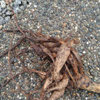Stories re: appying Nematodes to fight Narcissus Bulb Fly Larvae?
Wayne Reibold
14 years ago
Featured Answer
Comments (6)
gardengal48 (PNW Z8/9)
14 years agoWayne Reibold
14 years agoRelated Professionals
Horsham Landscape Architects & Landscape Designers · Hyattsville Landscape Architects & Landscape Designers · Owings Mills Landscape Architects & Landscape Designers · Southfield Landscape Architects & Landscape Designers · Milford Landscape Contractors · Braintree Landscape Contractors · Clayton Landscape Contractors · Columbine Landscape Contractors · Fairhope Landscape Contractors · Mendota Heights Landscape Contractors · Norwalk Landscape Contractors · Pine Hills Landscape Contractors · Raleigh Landscape Contractors · Secaucus Landscape Contractors · South Lyon Landscape ContractorsWayne Reibold
14 years agogardengal48 (PNW Z8/9)
14 years agolinnea56 (zone 5b Chicago)
14 years ago
Related Stories

FALL GARDENING7 Reasons Not to Clean Up Your Fall Garden
Before you pluck and rake, consider wildlife, the health of your plants and your own right to relax
Full Story
GARDENING GUIDESHow to Keep Your Citrus Trees Well Fed and Healthy
Ripe for some citrus fertilizer know-how? This mini guide will help your lemon, orange and grapefruit trees flourish
Full Story
GARDENING GUIDESGarden Myths to Debunk as You Dig This Fall and Rest Over Winter
Termites hate wood mulch, don’t amend soil for trees, avoid gravel in planters — and more nuggets of garden wisdom
Full StoryMore Discussions







Steve Massachusetts